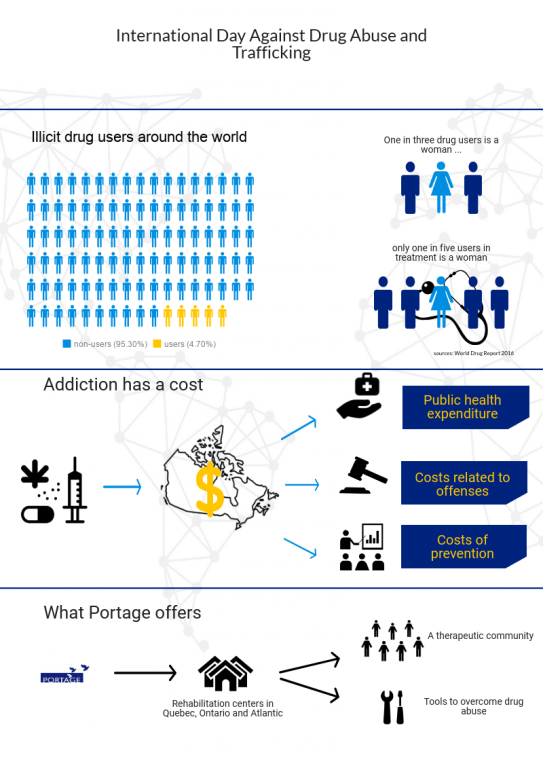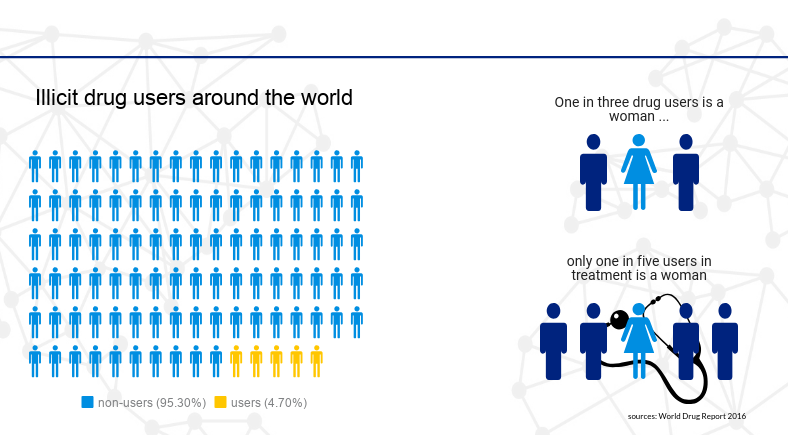The United Nations (UN) estimates today that more than 240 million people in the world suffer from illicit drug use. This represents 4.7% of the world’s population. It’s in light of this that the UN has decreed June 26th, as the International Day Against Drug Abuse and Illicit Trafficking.
Why Have a Day Dedicated to Combat Drug Abuse?
Every year, the World Drug Report examines in detail the trends that have entered into the world of illicit drugs, focusing on the consumption of the primary types of drugs and their effects on health. The breadth of the global drug problem carries a heavy burden on public health systems with respect to treatments, care and prevention. The objective of the International Day Against Drug Abuse and Illicit Trafficking is to reinforce action to rid society of drug abuse at a regional, a national and an international level.
The Actions Undertaken
The UN held, in April 2016, a special session on the global drug problem. This event marked the starting point of a large-scale action plan adopted by the member States that have committed to achieve fixed objectives between now and 2019. The reduction of the sale of illicit drugs and the demand and improvement of the access to treatment and prevention programs are the two primary axes of the recommended work. The recommendations focus on methods that target youth, children and women and encourage community involvement. In fact, the annual report on drugs demonstrates that a certain number of social and cultural obstacles continue to jeopardize treatment especially among youth and women (read:Are We All Equal in the Face of Addiction?).
In the world, we note that only 1 in 5 drug users that enter treatment are women, while a third of all substance abusers are women. A collection of data demonstrated that social factors related to ongoing substance abuse and the development of troubles linked to substance abuse varied considerably between men and women.
This being said, women would be more inclined to consume opioids (derivatives of opium) and prescription tranquillizers compared to men, who would be 3 times more likely to consume cannabis, cocaine and amphetamines. Opioids tend to have high propensity to regular use, which prompts a troubling thought regarding the problem facing the care of women with substance dependency.
Portage, a Solution at the Heart of the Problem
Portage, an organization that provides rehabilitation treatment to people so they can free themselves from their addiction, and live healthy, happy, and productive lives. Thanks to specialized drug addiction rehabilitation programs, thousands of people have regained control of their lives. These programs are offered to adolescents, adults, pregnant women and mothers with children, the aboriginal community, adults with mental health issues, and individuals referred by the justice system.







Leave a Reply